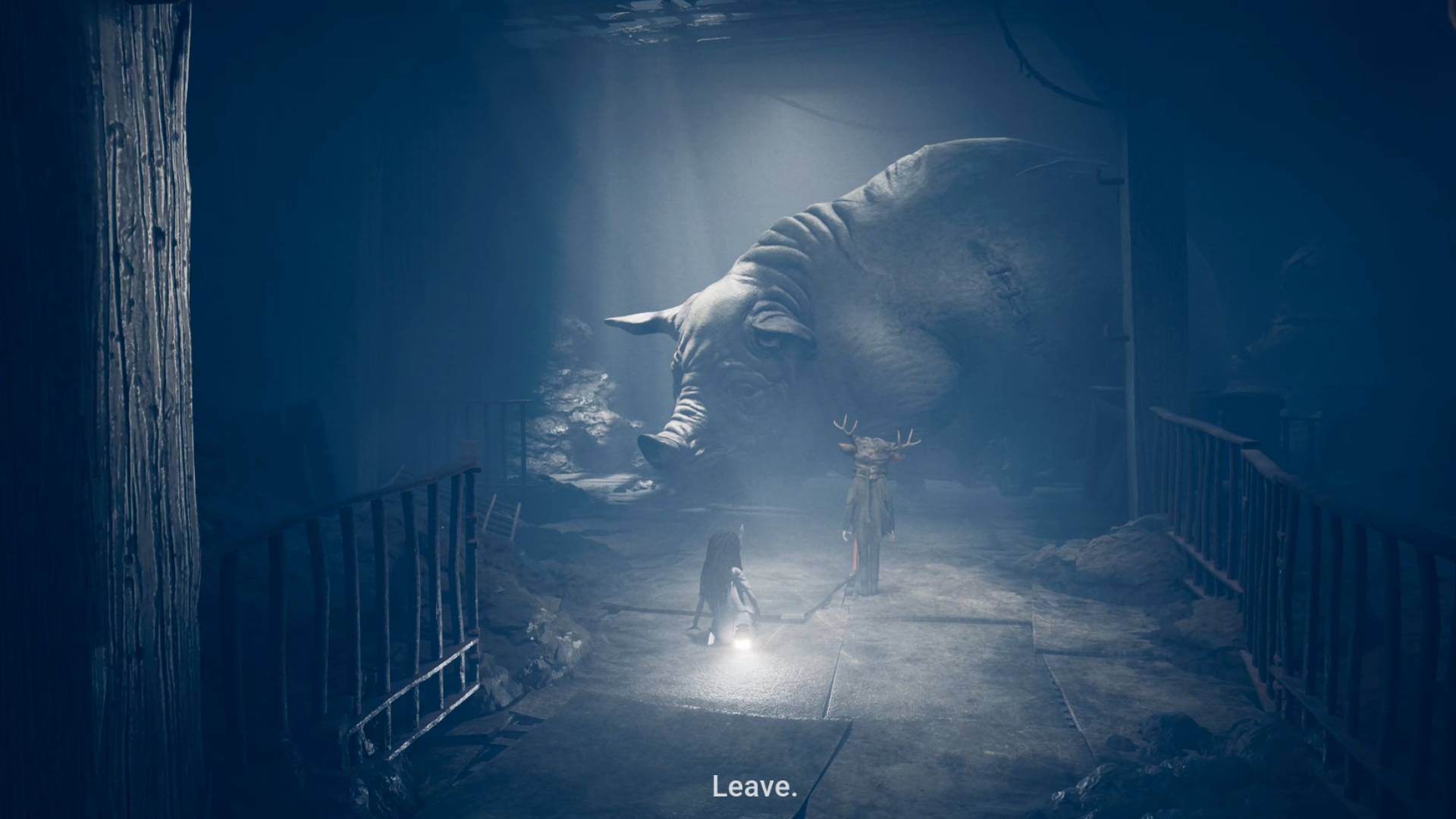Movie By Movie: Michael Haneke
Tracing The White Ribbon creator's dark and probing career…
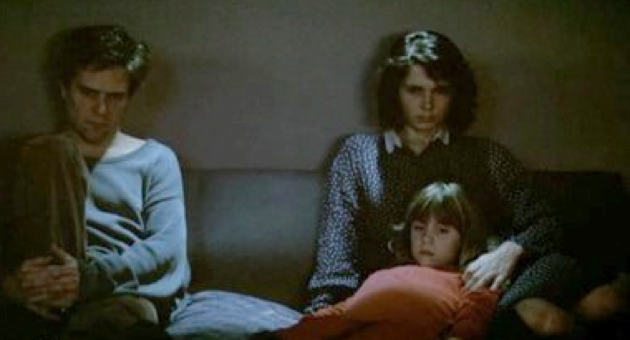
The Seventh Continent (1989)
The Film: Inspired by a tragic true story, Haneke starts strong with this look at a family - Dad Georg, Mum Anna and daughter Eva - who, seemingly drained by life and mundane routine, decide to "emigrate" - committing suicide in a shocking pact.
Among their actions is wordlessly smashing up their worldly possessions (including a large, fish-filled aquarium) and flushing their cash down the toilet.
It's not an easy watch, but then that wasn't Haneke's intention. And it kick-starts themes (isolation, problems with modern family life) that would run through all of his work.
Haneke's View: "When we were invited to Cannes, I said to the producer, 'you'll see, there are two scenes people will be upset about. One is the scene when they break the aquarium. The death of the fish. And the money.'
"The producer said, 'No, that's ridiculous. Maybe the part with the fish because they're animals. And because of the child. But never the money.' And in the end, that's exactly how it was. There were people who left the cinema, slamming the doors.
"Everywhere I showed the film, that was the main scene people complained about. Because it's the greatest taboo. It's a lot less disturbing if people kill their children and themselves. Than if they destroy money."
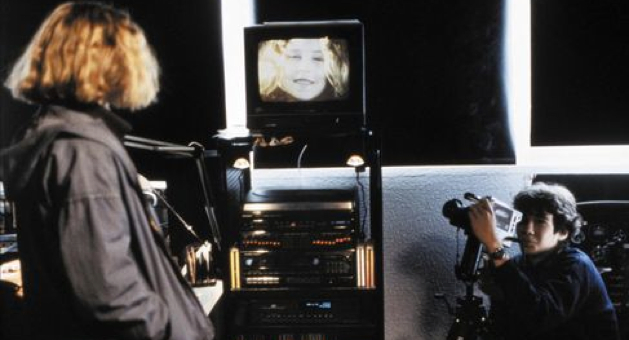
Benny's Video (1992)
The Film: Haneke's exploration of death and troubled characters bubbles to the surface once more - as does his use of character names Anna, Georg and Eva.
This time, however the focus is (literally, since so much of the movie is viewed through lenses and video monitors) on the emotionally stunted Benny, whose terrible act of murder is covered up by his parents, with eventual (but off-screen) devastating consequences.
Haneke's View: "I'm trying as best I can to describe a situation as I see it without bullshitting or disingenuousness, but by so doing I subscribe to the notion that communication is still possible, otherwise I wouldn't be doing this.
"The new technologies, of both media representation and the political world, allow greater damage with ever-increasing speed. The media contribute to a confused consciousness through this illusion that we know all things at all times, and always with this great sense of immediacy.
"We live in this environment where we think we know more things faster, when in fact we know nothing at all. This propels us into terrible internal conflicts, which then creates angst, which in turn causes aggression, and this creates violence. This is a vicious cycle."
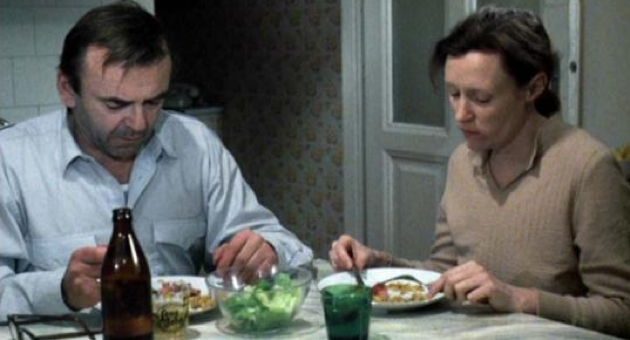
71 Fragments of a Chronology of Chance (1994)
The Film: Haneke describes Fragments as the third part of his unofficial "glaciation trilogy", with the three films sharing the themes of alienation but also a stylistic choice to drag out the narrative and ramp up the tension without quick edits or jump cuts.
This entry has various stories running through it, which largely seem unconnected until they're brought together by one tragedy set at a bank.
Haneke's View: "In all of my films, I try to fuel mistrust in our faith in reality. We know nothing about the world, except the things we have experienced directly. And we can examine these things.
"But everything else we experience through the media. And this functions like Chinese whispers, a piece of information is related from one person to the next.
"I see it as my aesthetic duty to reflect this. It's no coincidence that post-War literature signaled the end of classical narrative literature. It came from the experience of fascism, and the same applies to film."
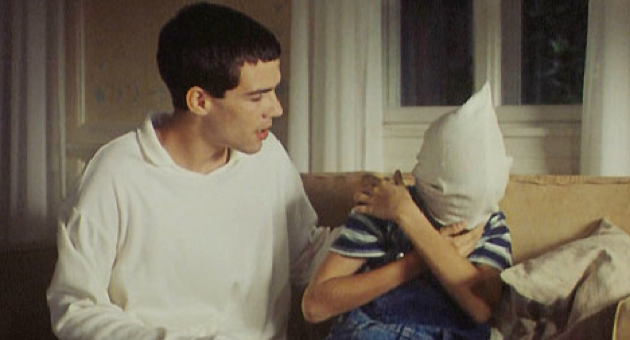
Funny Games (1997)
The Film: Coming just after the former TV writer went back to the format to produce his adaptation of Kafka's The Castle, Funny Games ramps up the bleakness, but spices it with a twisted humour and an intent to re-sensitize a cinema-going audience used to placidly accepting murder on screen.
Haneke's View: "My goal there was a kind of counter-program to Natural Born Killers. In my view, Oliver Stone's film, and I use it only as example, is the attempt to use a fascist aesthetic to achieve an anti-fascist goal, and this doesn't work.
"What is accomplished is something the opposite, since what is produced is something like a cult film where the montage style complements the violence represented and presents it largely in a positive light. It might be argued that Natural Born Killers makes the violent image alluring while allowing no space for the viewer.
"I feel this would be very difficult to argue about Funny Games. Benny's Video and Funny Games are different kinds of obscenity, in the sense that I intended a slap in the face and a provocation."
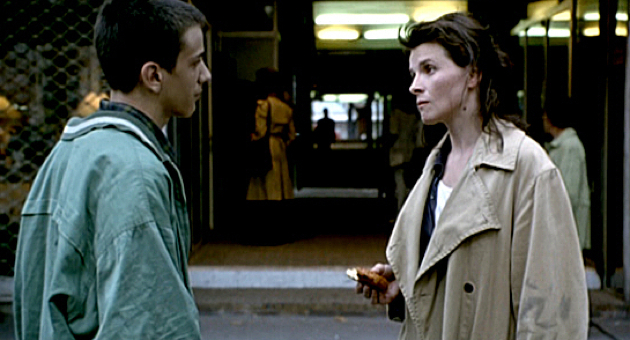
Code Unknown (2000)
The Film: Filmed with long, unedited takes shot in real time, Haneke forces the audience to be a part of the story in another use of several stories intertwining.
As characters - including Juliette Binoche's actress - clash and crash together, Haneke focuses on how the world has seemingly lost the ability to communicate ideas and values.
Haneke's View: "The failure of communication is on all levels: interpersonal, familial, sociological, political.
"The film also questions the purpose of communication, and also what is being avoided and prevented in communication processes. The film tries to present these questions in a broad spectrum."
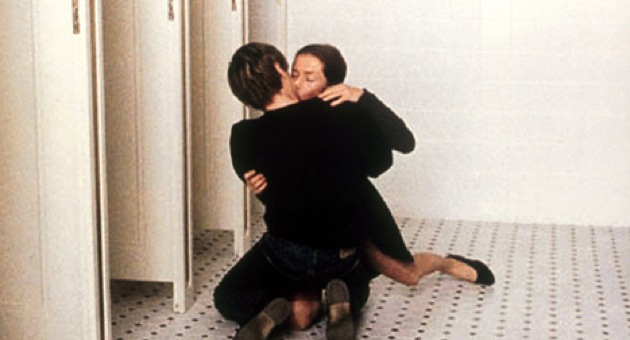
The Piano Teacher (2001)
The Film: Arguably Haneke's best to date, taking a purely fictional source (it adapts Elfriede Jelike's novel about a musical mistress whose attitude towards her students - and one in particular - takes on disturbingly erotic dimensions).
He still manages to find time for his obsessions with damaged psyches, and it earns him the Golden Palm at Cannes, with stars Benoit Magimel and Isabelle Huppert scoring Best Actor and Actress.
Haneke's View: "The choice of music was one of the most enjoyable parts of making the film," he says. "But I have too much respect for music to simply throw it in my films, which is why music rarely comes up in them. Usually music is used to hide a film's problems.
"Here music becomes a part of the film itself. Some of the pieces are specified in the novel itself - Bach's double concerto for two klaviers for instance. In the novel Erika Kohut says her two favourite composers are Schubert and Schumann, but it was up to me to choose which pieces to use."
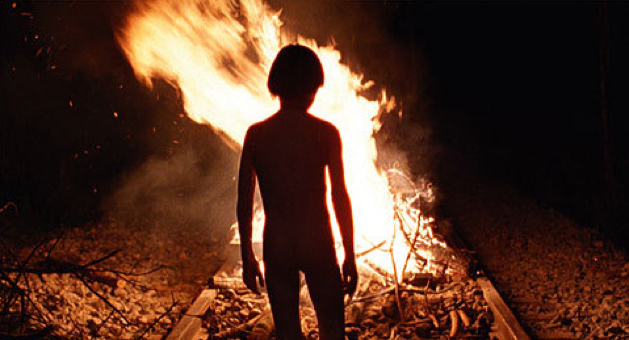
Time Of The Wolf (2003)
The Film: Seemingly slipping through the cracks when Haneke's career to date is discussed, this post-apocalyptic drama, set in an unidentified European country, tackles what happens when a family (whose members contain people named - surprise! - Georges, Anne and Eva) flee to their country home, hoping to find refuge.
But what they really find are strangers living there - and that's when the trouble really starts.
Haneke's View: "This is about how people treat each other when electricity no longer comes out of the outlet and water no longer comes out of the faucet. I'm a bit concerned that after the events of September 11th this film will be read very specifically, but it takes place in neither America nor Europe, and focuses on very primal anxieties.
"Time Of The Wolf was an expensive film, and finding financing for it was accordingly difficult. Thanks to the success of The Piano Teacher we were able to find the necessary funds. I was in the process of writing Caché when 9/11 happened, and I said to myself, if we don't react to that with Time of the Wolf, then when? After that I finished Caché, but then put it on the back burner and made Wolf first."
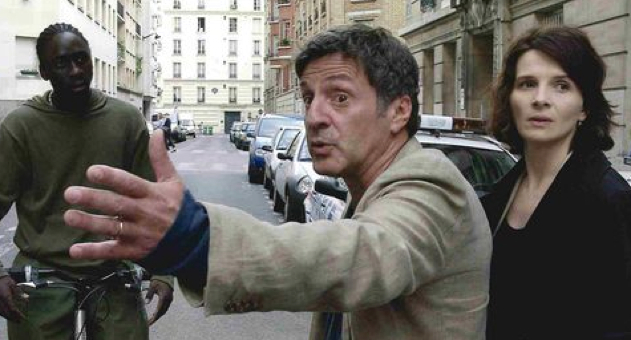
Hidden (AKA Cach, 2005)
The Film: Secrets - both imagined and real - are the driving force for this superb little thriller. Once more, characters named George and Anne confront a nasty situation, though this time it's partly one of their own paranoid making.
It was nominated for the Golden Palm at Cannes and Haneke won Best Director.
Haneke's View: "It basically develops like a classic thriller. Thrillers always work with fear. You have a cell. Then a letter arrives, a cassette or even a packet with a head in it and it all takes off from there. In the process, you learn a lot of things about the inner world of this cell and its social infrastructure.
"I used this format principally to ask one question: how do we deal with our guilty consciences? 'What we wouldn't do not to lose a thing,' the Algerian-born character Majid says to Georges in a key scene, who thinks Majid is the man threatening him.
"How do you behave when confronted with something that you should actually admit responsibility for? These are the sort of strategies that interest me, talking yourself out of guilt."
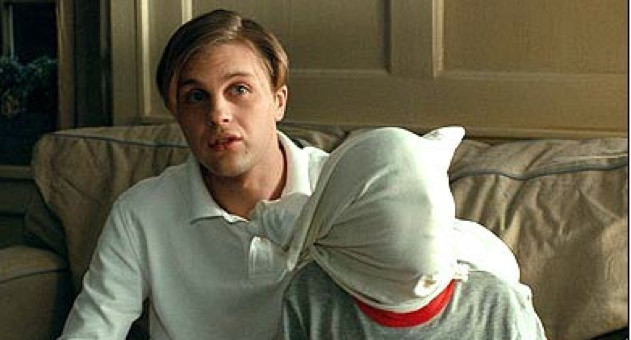
Funny Games (2007)
The Film: Made largely as both a challenge to his own abilities (see his comment below) and because he refused to let anyone else do it, Haneke produces a shot-for-shot remake of his 1997 charming-serial-killers-torment-family thriller.
He would only make it with Naomi Watts starring, and, in all honesty, never quite got it to the same impressive level as the original.
Haneke's View: "In order to decide to do a shot-by-shot remake, you have to be masochistic to some point, because it is a much greater challenge. If you do an original film, and you don’t like a scene, you just cut it out. But if you do a shot-by-shot remake you don’t have that option; you have to be sure it succeeds.
"I didn’t have to add anything, and just to change it a little bit I thought was dishonorable. If at all, it became almost a gamble with myself, whether I was able to do the exact same film under very different circumstances."
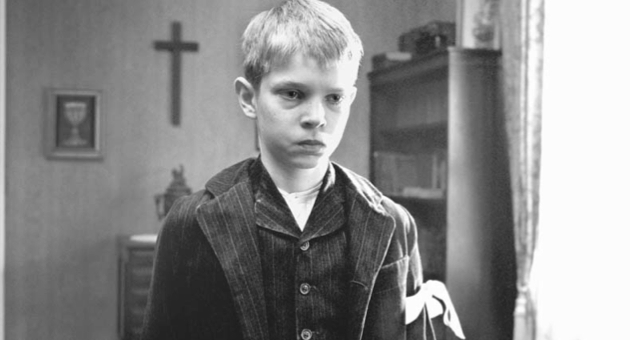
The White Ribbon (2009)
The Film: Arriving in our cinemas on November 13, Haneke's latest was in development for 10 years, and was originally written as a TV miniseries, before entering limbo, searching for funding.
A blend of young newcomers and established Haneke actors, the film finds strange events occurring in a small village in Germany shortly before World War One. Can the local children - endlessly repressed and abused - be behind the punishments being meted out to some adults?
Haneke's View: "My main aim was to look at a group of children who are inculcated with values transformed into an absolute and how they internalise them. If we raise a principle or ideal, be it political or religious, to the status of an absolute, it becomes inhuman and leads to terrorism.
"Another title I considered was The Right Hand Of God, for the children in the film apply these ideals to the letter and punish those who don’t share them 100%.
"Moreover, the film is not just about fascism, which would be too simplistic an interpretation since the story is set in Germany, but about a definite pattern and the universal problem of corrupted ideals."
James White is a freelance journalist who has been covering film and TV for over two decades. In that time, James has written for a wide variety of publications including Total Film and SFX. He has also worked for BAFTA and on ODEON's in-cinema magazine.
Weekly digests, tales from the communities you love, and more
You are now subscribed
Your newsletter sign-up was successful
Want to add more newsletters?

Every Friday
GamesRadar+
Your weekly update on everything you could ever want to know about the games you already love, games we know you're going to love in the near future, and tales from the communities that surround them.

Every Thursday
GTA 6 O'clock
Our special GTA 6 newsletter, with breaking news, insider info, and rumor analysis from the award-winning GTA 6 O'clock experts.

Every Friday
Knowledge
From the creators of Edge: A weekly videogame industry newsletter with analysis from expert writers, guidance from professionals, and insight into what's on the horizon.

Every Thursday
The Setup
Hardware nerds unite, sign up to our free tech newsletter for a weekly digest of the hottest new tech, the latest gadgets on the test bench, and much more.

Every Wednesday
Switch 2 Spotlight
Sign up to our new Switch 2 newsletter, where we bring you the latest talking points on Nintendo's new console each week, bring you up to date on the news, and recommend what games to play.

Every Saturday
The Watchlist
Subscribe for a weekly digest of the movie and TV news that matters, direct to your inbox. From first-look trailers, interviews, reviews and explainers, we've got you covered.

Once a month
SFX
Get sneak previews, exclusive competitions and details of special events each month!
